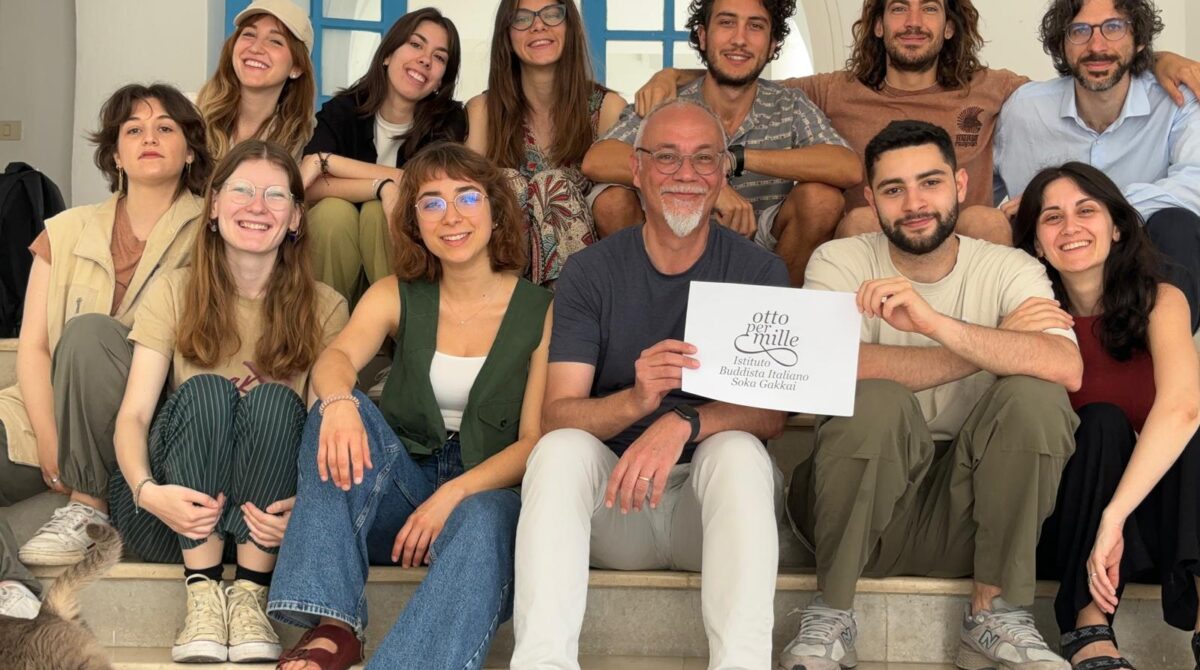What does it mean to be a global citizen in today’s world, and why is it crucial for young people to engage with this issue?
Tarozzi: Global citizenship education is an educational approach that the United Nations, especially UNESCO, has strongly promoted over the past two decades. It’s a concept of global civic education aimed at shaping future generations, with a lifelong learning perspective. It encompasses peace education, intercultural learning, human rights, gender education, as well as education for sustainable development and environmental awareness. Educating for global citizenship means using a transformative approach that goes beyond merely transmitting knowledge and skills, which are useful but not sufficient to enable people to adopt more responsible behaviors. This approach encourages a comprehensive, integrated, and holistic perspective, empowering individuals to act more responsibly and with greater social commitment. As a university professor, I am responsible for the Global Citizenship Competencies course, a cross-disciplinary course available to students from all departments, not just education, sociology, or political science.
How did the project supported by the 8×1000 funds from Soka Gakkai come about?
Tarozzi: Teaching global citizenship competencies is not just about lecturing, taking notes, assigning readings, and testing comprehension. Of course, readings are essential—understanding the global challenges and the theoretical frameworks that address them—but the main goal is to ignite this transformative process.
That’s how the idea came about: to combine classroom lessons—inviting faculty from various disciplines— with an experiential trip, working with We World, which is already active in the field with global citizenship projects. This experience allows students to challenge their established beliefs, values, and biases — especially those we Europeans have about Africa. It broadens their horizons through a study trip to a country with a vastly different reality from ours.
Last year, we were in Lebanon, in Beirut, and this year, in Tunisia.
A huge thank you goes to the Italian Buddhist Institute Soka Gakkai, which immediately understood the essence and spirit of this initiative. Without their support, it would not have been possible to take students to Tunisia, unless we asked them to pay out of pocket, which would have penalized those without the financial means.
Finally, another big thanks to Dr. Annalisa Quinto (Unibo) and Dr. Gian Marco Alonzi (WeWorld) for their invaluable organizational support, without which this project wouldn’t have been possible.
How is the project “Teaching Global Citizenship Education at University” structured?
Romanelli: There are two main components: a study trip to Tunisia, in collaboration with UNESCO Maghreb and the University of Carthage, to explore global issues related to migration and sustainability, and a short internship at WeWorld, an NGO working on global citizenship education projects focused on gender equality, climate justice, and sustainable consumption and development models, particularly in agriculture.
WeWorld conducts global citizenship education activities across Italy, in connection with European and international programs. One of our goals as an organization is to influence policymakers to integrate global citizenship education more effectively into local, national, and international policies.
Thanks to the 8×1000 funds from Soka Gakkai, we structured the project by integrating two components: work in Italy and an overseas trip, giving students firsthand exposure to global dimensions. The project’s goal is to acquire the skills to act locally while maintaining a global perspective. It’s about fostering a mindset that builds bridges and relationships. We’ve had a presence in Tunisia for several years, focusing on local development, which allowed us to create internships for students, combining theoretical learning in an academic setting with hands-on experience, exposing the challenges of working in such contexts.
Why did you become interested in this project?
Malavolti: My background is in anthropology, and this program represented a crossroads of everything I had studied up to that point.
At an academic level, it’s not easy to find courses that address current topics like migration, globalization, sustainability, or even just socio-cultural pluralism.
Moreover, the experiential aspect of the trip to Tunisia was crucial in solidifying the theoretical knowledge I had gained throughout my studies and seeing how it is applied in practice.
What did you learn from the trip?
Malavolti: On the trip, we explored dynamics that impact our lives as Italian citizens, but also as Europeans. We examined the historical and cultural dimensions, for example, by visiting museums about Tunisia and historical sites. But we also delved into the educational aspect through UNESCO Maghreb and the University of Carthage. It was interesting to interact with other students.
At the end of each day, we held a debrief where we discussed what we had seen and heard.
In this political climate and at this historical moment, not many European citizens have this opportunity. This type of self-reflection, as we say in anthropology, is somewhat of a culture shock, but by confronting the “other,” you can truly discover who you are.
What was it like meeting students from another country?
Malavolti: It was very ambivalent, and in fact, it was the most divisive aspect because we, as European students, were excited and free to engage in exchanges. We knew what to expect, but when you’re actually there, everything changes. Confronting the limitations faced by a student from the University of Carthage, like their inability to travel as freely, was both shocking and emotionally intense.
Would you like to share a message of hope with other young people?
Malavolti: To grow as individuals, it’s essential to always remember the cross-cutting nature of life and focus on finding the “out-of-place detail,” like using a magnifying glass that lets us see things clearly and understand where the truth lies.
Digging deeper with a critical mindset allows us to build a more just society.
